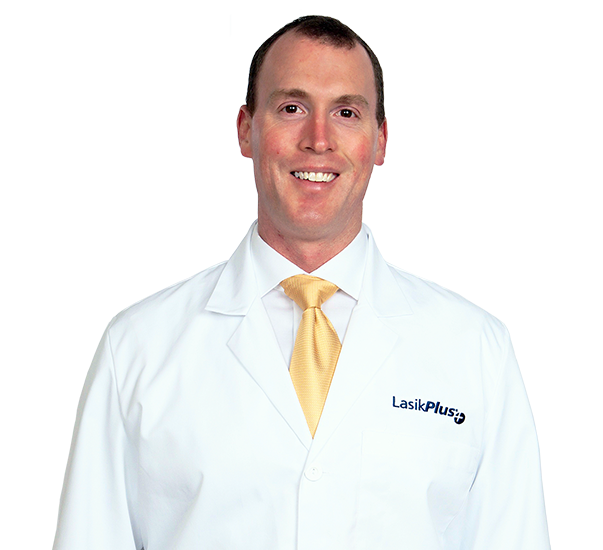-
See the Difference: Save $1,000 on LASIK , Find More
*Must mention this promotion and be treated before April 30 of 2025 to qualify. $1,000 off for both eyes on standard Wavelight price, $500 off for one eye. Cannot be combined with any other offers.
- Home >
- Lasik Resources >
- Articles on LASIK and Common Eye Conditions >
- Blog >
- Lasik >
- Can LASIK Surgery Correct Cataracts? Debunking the Myth
Can LASIK Surgery Correct Cataracts? Debunking the Myth
LASIK surgery has revolutionized the field of vision correction, offering millions of people worldwide a chance to experience clear vision without the need for glasses or contact lenses. However, there’s a common misconception among some individuals that LASIK surgery can also correct cataracts. In this article, we’ll delve into the facts surrounding LASIK surgery and its relation to cataracts, drawing upon information from trusted medical sources such as the American Optometric Association.
Understanding LASIK Surgery:
LASIK, which stands for Laser-Assisted In Situ Keratomileusis, is a surgical procedure primarily designed to correct refractive errors such as nearsightedness, farsightedness, and astigmatism. During the procedure, a laser is used to reshape the cornea, allowing light to focus properly on the retina, thereby improving vision.
Cataracts: Causes and Symptoms:

Cataracts, on the other hand, are a common age-related condition characterized by the clouding of the eye’s natural lens. This cloudiness can result in blurry vision, difficulty seeing in low light conditions, glare sensitivity, and other visual disturbances. While cataracts primarily affect older individuals, they can also occur due to factors such as genetics, certain medications, and trauma to the eye.
LASIK and Cataracts: Dispelling the Myth:
Despite the effectiveness of LASIK in correcting refractive errors, it is not suitable for treating cataracts. LASIK surgery targets the cornea, whereas cataracts affect the eye’s natural lens. Therefore, LASIK cannot remove or improve the cloudiness caused by cataracts.
Treatment Options for Cataracts:
Fortunately, individuals with cataracts have several treatment options available to them. The most common and effective treatment for cataracts is cataract surgery, during which the cloudy lens is removed and replaced with an artificial intraocular lens (IOL). Cataract surgery is a safe and highly successful procedure, with millions of surgeries performed worldwide each year.
Consultation with an Eye Care Professional:
If you are experiencing symptoms of cataracts or are considering vision correction surgery, it’s essential to consult with an eye care professional. An optometrist or ophthalmologist can assess your individual needs, discuss treatment options, and recommend the most suitable course of action based on your eye health and visual requirements.
YOU MIGHT ALSO LIKE...
-
City Match
Independence, Ohio
-
City Match
Providence, North Carolina
-
City Match
St. Paul, Minnesota
-
City Match
Oak Brook, Illinois
-
City Match
Westchester, Illinois
-
City Match
Tinley Park, Illinois
-
City Match
Leawood, Kansas
-
City Match
Olathe, Kansas
-
City Match
Manhattan, Kansas
-
City Match
Columbus, Ohio
-
City Match
Houston, Texas
-
City Match
Houston, Texas
-
City Match
Houston, Texas
-
City Match
Houston, Texas
-
City Match
Houston, Texas
-
City Match
Atlanta, Georgia
-
City Match
Atlanta, Georgia
-
City Match
Dallas, Texas
-
City Match
Dallas, Texas
-
City Match
Birmingham, Alabama
-
City Match
Birmingham, Alabama
-
City Match
Norman, Oklahoma
-
City Match
Durham, North Carolina
-
City Match
Philadelphia, Pennsylvania
-
City Match
Athens, Ohio
-
City Match
Lewis Center, Ohio
-
City Match
Delaware, Ohio
-
City Match
Columbus, Ohio
-
City Match
Columbus, Ohio
-
City Match
Oak Brook, Illinois
-
City Match
Indianapolis, Indiana
-
City Match
Indianapolis, Indiana
-
City Match
Indianapolis, Indiana
-
City Match
Indianapolis, Indiana
-
City Match
Indianapolis, Indiana
-
City Match
Las Vegas, Nevada
-
City Match
Houston, Texas
-
City Match
Eau Claire, Wisconsin
-
City Match
Oshkosh, Wisconsin
-
City Match
Kenosha, Wisconsin
-
City Match
Indianapolis, Indiana
-
City Match
Indianapolis, Indiana
-
City Match
Vancouver, Washington
-
City Match
Boulder , Colorado
-
City Match
Aurora , Colorado
-
City Match
Colorado Springs, Colorado
-
City Match
Santa Fe, New Mexico
-
City Match
Gainesville, Florida
-
City Match
St. Augustine, Florida
-
City Match
Evanston, Illinois
-
City Match
Greenwood , Indiana
-
City Match
Waco, Texas
-
City Match
Arlington, Texas
-
City Match
Loudoun County, Virginia
-
City Match
Sarasota , Florida
-
City Match
Austin, Texas
-
City Match
Austin, Texas
-
City Match
Austin, Texas
-
City Match
Austin, Texas
-
City Match
Austin, Texas
-
City Match
Jacksonville, Florida
-
City Match
Plantation, Florida
-
City Match
Tampa, Florida
-
City Match
Altamonte Springs, Florida
-
City Match
Saratoga Springs, New York
-
City Match
Atlanta, Georgia
-
City Match
Atlanta, Georgia
-
City Match
Atlanta, Georgia
-
City Match
Hartford, Connecticut
-
City Match
New York, New York
-
City Match
Las Vegas, Nevada
-
City Match
Scottsdale, Arizona
-
City Match
Scottsdale, New York
-
City Match
Scottsdale, Arizona
-
City Match
Houston, Texas
-
City Match
Houston, Texas
-
City Match
Houston, Texas
-
City Match
Houston, Texas
-
City Match
Mesa, Arizona
-
City Match
Sandy, Utah
-
City Match
Ogden, Utah
-
City Match
Houston, Texas
-
City Match
Provo, Utah
-
City Match
Brooklyn, New York
-
City Match
Brooklyn, New York
-
City Match
Brooklyn, New York
-
City Match
New Jersey, New Jersey
-
City Match
New York, New York
-
City Match
New Jersey, New Jersey
-
City Match
Wilmington, Pennsylvania
-
City Match
New Jersey, New Jersey
-
City Match
Lancaster, Pennsylvania
-
City Match
Paramus, New Jersey
-
City Match
York, Pennsylvania
-
City Match
Bozeman, Idaho
-
City Match
Nampa, Idaho
-
City Match
Salem, Oregon
-
City Match
Renton, Washington
-
City Match
Renton, Washington
-
City Match
Cleveland , Ohio
-
City Match
Columbia, Maryland
-
City Match
Renton, Washington
-
City Match
Florida, Florida
-
City Match
Florida, Florida
-
City Match
Overland Park, Kansas
-
City Match
Topeka, Kansas
-
City Match
Arizona, Arizona
-
City Match
Washington, Washington
-
City Match
Garden City, New York
-
City Match
Madison, Wisconsin
-
City Match
Boca Raton, Florida
-
City Match
New York, New York
-
City Match
Tucson, Arizona
-
City Match
Charlottesville, Virginia
-
City Match
Amherst, New York
-
City Match
Billings, Montana
-
City Match
Southfield, Michigan
-
City Match
Virginia Beach, Virginia
-
City Match
El Paso, Texas
-
City Match
Syracuse, New York
-
City Match
West Palm Beach, Florida
-
City Match
Greenville, South Carolina
-
City Match
Durham, North Carolina
-
City Match
Grand Rapids, Michigan
-
City Match
Greensboro, North Carolina
-
City Match
Mount Pleasant, South Carolina
-
City Match
Birmingham, Alabama
-
City Match
Las Vegas, Nevada
-
City Match
Memphis, Tennessee
-
City Match
Metairie, Louisiana
-
City Match
Little Rock, Arkansas
-
City Match
West Fargo, North Dakota
-
City Match
Oklahoma City, Oklahoma
-
City Match
Charlotte, North Carolina
-
City Match
Chicago, Illinois
-
City Match
Atlanta, Georgia
-
City Match
Milwaukee, Wisconsin
-
City Match
Denver, Colorado
-
City Match
Houston, Texas
-
City Match
Boise, Idaho
-
City Match
Austin, Texas
-
City Match
Spokane, Washington
-
City Match
Renton, Washington
-
City Match
Brooklyn, New York
-
City Match
Indianapolis, Indiana
-
City Match
Jacksonville, Florida
-
City Match
Leawood, Kansas
-
City Match
Lexington, Kentucky
-
City Match
Louisville, Kentucky
-
City Match
Minneapolis, Minnesota
-
City Match
Maple Grove, Minnesota
-
City Match
Oakdale, Minnesota
-
City Match
Edison, New Jersey
-
City Match
Paramus, New Jersey
-
City Match
Omaha, Nebraska
-
City Match
Orlando, Florida
-
City Match
Philadelphia, Pennsylvania
-
City Match
Mt. Laurel, New Jersey
-
City Match
Scottsdale, Arizona
-
City Match
Chandler, Arizona
-
City Match
Pittsburgh, Pennsylvania
-
City Match
Portland, Oregon
-
City Match
Glen Allen, Virginia
-
City Match
Salt Lake City, Utah
-
City Match
San Antonio, Texas
-
City Match
Creve Coeur, Missouri
-
City Match
Tampa, Florida
-
City Match
Alexandria, Virginia
-
City Match
Rockville, Maryland
-
City Match
McLean, Virginia
-
City Match
Albany, New York
-
City Match
Albuquerque, New Mexico
-
City Match
Duluth, Georgia
-
City Match
Towson, Maryland
-
City Match
Columbia, Maryland
-
City Match
Oak Brook, Illinois
-
City Match
Schaumburg, Illinois
-
City Match
Cincinnati, Ohio
-
City Match
Cleveland, Ohio
-
City Match
Columbus, Ohio
-
City Match
Dallas, Texas
-
City Match
Dayton, Ohio
-
City Match
West Des Moines, Iowa
-
City Match
Miramar, Florida
-
City Match
Harrisburg, Pennsylvania
-
City Match
Wethersfield, Connecticut
VISION CENTERS NEAR ME
Enter your zip code, city, or a doctor name below to find a vision center.
All LasikPlus Locations - Select a State
- Arkansas
- Alabama
- Arizona
- Colorado
- Connecticut
- Florida
- Georgia
- Iowa
- Idaho
- Illinois
- Indiana
- Kansas
- Kentucky
- Louisiana
- Maryland
- Michigan
- Minnesota
- Missouri
- Montana
- North Carolina
- North Dakota
- Nebraska
- New Jersey
- New Mexico
- Nevada
- New York
- Ohio
- Oklahoma
- Oregon
- Pennsylvania
- South Carolina
- Tennessee
- Texas
- Utah
- Virginia
- Washington
- Wisconsin
Find out if LASIK is right for you
Congratulations!
Your vision issues can most likely be corrected with a LASIK procedure. Schedule a free consultation today.
Answer 5 simple questions to see if you are a candidate
What is your age group?
Do you wear...
With corrective lenses, do you have...
Have you ever been told that you have astigmatism?
Have you ever been told that you have dry eyes?
Request an Information Kit
Learn about your surgeon, the latest advanced technology, procedures, options and benefits, financing options, and what to expect from your LASIKPlus experience.
Your Information Kit is ready for download!

LasikPlus Information Kit
DownloadAn error occurred. Please check your input and try again.








